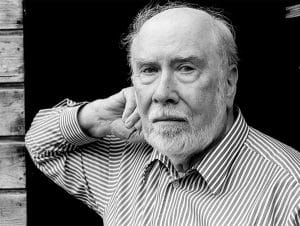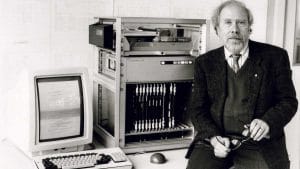Born in Switzerland, Wirth received a degree in electrical engineering from the Swiss Federal Institute of Technology in Zürich (ETHZ), then a Master of Science from Université Laval in Quebec, Canada, then a PhD in electrical engineering and computer science from the University of California, Berkeley. He taught computer science both at Stanford University and the University of Zürich, and then was a professor at ETHZ. He made a lot of impact with his teaching, but what he taught went around the world.

What Wirth taught, really, was how to program. To get there, he was the lead in creating many programming languages, including Euler (1965, an extension of Algol 60), PL360 (1966, for the IBM System 360 at Stanford), ALGOL W (1966), Modula (1975), Modula-2 (1978), Oberon (1987), Oberon-2 (1991), and Oberon-07 (2007). But what really broke ground was Pascal (1970), which he wrote in such a way as to “encourage” structural programming and data storage. What Wirth was really teaching was structured programming, a paradigm that improves the clarity, quality, and development time of computer programs. ALGOL in particular was the pioneer in structured development. Wirth’s publication in 1971 of “Program Development by Stepwise Refinement” is considered a classic text to teach programming, and was discussed by This is True reader Fred Brooks in his own seminal work about programming, The Mythical Man-Month.

Wirth’s ideas about programming came in part from a working sabbatical (1976-1977) at the Xerox Palo Alto Research Center, which had developed a computer workstation, most famously including one of the first mice. He took the ideas back to ETHZ, where he led the development of the Lilith workstation, running the Modula-2 language. His version of the mouse was the basis for the mass-produced mice manufactured by Logitech. “ETH Zürich has lost one of its greats,” says Joël Mesot: “someone who not only did pioneering work in the development of programming languages, but was also one of the founding fathers of computer science in Switzerland and at ETH.”
Wirth taught that computer software is getting slower more rapidly than computer hardware is becoming faster. He attributed the idea to Martin Reiser, a Swiss computer scientist, but perhaps Wirth conveyed the idea more succinctly: it’s now known as Wirth’s Law. Wirth received the 1984 Association for Computing Machinery’s Turing Award for the development of so many landmark programming languages. Wirth retired from teaching in 1999, but never fully retired from programming: he continued to work on the Oberon programming language, as well as its associated operating system, until his death. Dr. Niklaus Emil Wirth died on January 1, at 89.
